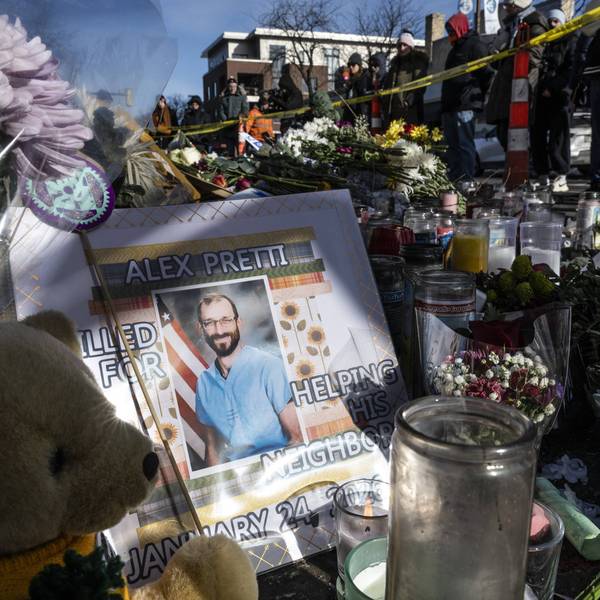Every right we have fought for and won since Dr. Martin Luther King Jr. delivered his monumental "I Have a Dream" speech 56 years ago this Wednesday is under unrelenting attack and in grave peril -- from the right to drink fresh water and breathe clear air, to the right of workers to organize for better wages and safer conditions to the right to vote without interference from "enemies foreign and domestic" to the rights of women, children, the LGBTQ community and immigrants.
But it's not just our rights that are in danger.
It is our very lives.
After the horrendous mass shooting in El Paso, Texas by a white supremacist -- who drove more than 600 miles to the city with the explicit purpose of slaughtering Latinos in response to the mythical "invasion" President Donald Trump and the right ranted about -- new attention has been paid to the growing violence of white supremacists.
In the few weeks since El Paso, six white supremacists have been arrested for plotting violent attacks. The Anti-Defamation League reports that white extremists killed 50 people last year -- people of all races.
Some compare the threat posed by white supremacists here at home to the terrorist threat posed by ISIS or al-Qaida. What too often is overlooked, as MSNBC commentator Chris Hayes noted in his show last Friday, is that white terrorist violence has been part of the American experience from the beginning.
Hayes notes that the first real terrorist cells in the U.S. arose after the Civil War as a response by white southerners to the freeing of slaves. When slaves became free men, the power of the white establishment in the South was threatened.
The reaction was violent -- with community leaders joining to create terrorist cells -- most of which became known as the Ku Klux Klan. To preserve white dominance, the Klan launched a wave of terror against blacks and their white allies across the South, including lynching, murder, abduction and rape.
Hayes cites the 2,000 murders in the state of Kansas in the lead-up to the 1868 election, designed to terrorize potential black voters, with the explicit aim of sustaining white power.
When Ulysses S. Grant became president, Congress passed legislation in 1870 -- the Enforcement Acts -- that empowered the federal government to respond to the wave of terror.
For the first time, the newly created Department of Justice began prosecuting the Klan in federal courts, backed by federal troops on the ground in the South. They made great progress against the Klan until a political compromise that led to the withdrawal of federal troops and the reassertion of "states' rights."
That opened the floodgates to a wave of terrorist attacks launched by the Klan and others against blacks that enforced apartheid across the south.
White terrorism goes hand in hand with slavery.
White slave owners were in constant fear of slave revolts and on constant guard against slaves running away to seek their freedom. Slave patrol militias -- made up of volunteers from the leading slave-owning families of the South -- were created to police the plantations, to track down runaway slaves and to put down any insurrection.
Again, violence -- from whipping to murder -- was employed routinely by the slave patrols.
The Second Amendment -- the right of people to join militias and bear arms -- was added to the Constitution in large part to protect the right of slave owners to sustain the slave patrol militias.
In 1788, when Virginia met to consider ratification of the Constitution, slave owners attacked the Constitution for giving the federal government the right to organize militias.
At the time, slaves outnumbered the white population in much of eastern Virginia.
James Madison wrote the Second Amendment largely to protect the rights of slave owners to enforce the reign of terror against slaves in the South. It had nothing to do with the right of individuals to bear arms, because blacks -- free or enslaved -- were prohibited from owning and bearing arms across the South.
Today when demagogues like Trump fan the fears of an "invasion" of Latinos and blacks that he believes will erode white dominance, white supremacist violence is once more on the rise.
As Hayes argues, when the federal government acts to condemn and to prosecute this domestic terrorism, it can largely stamp it out. But when it fans the flames or turns its back or leaves it to the states that terrorism can easily get out of control.
Today, America is still wrestling with how and whether it will grow out of its racial divides.
By fanning the flames of those divides, Trump is dangerously choosing to feed an increasingly violent white supremacist reaction.




